- Home
- Alison Weir
Jane Seymour: The Haunted Queen Page 3
Jane Seymour: The Haunted Queen Read online
Page 3
“By God, you take too much upon yourself, Jane!” Edward growled. “What do you know of what passes between a husband and wife—or rarely passes, in our case? You’re going to be a nun.”
“I only know that it grieves me to see her weep so often,” Jane persisted. “As for becoming a nun…” She allowed her voice to trail off. She was nineteen now, and although the religious life still held strong attractions for her, Mother had been right: she had changed, and she was not now as certain of her vocation as she had been last year.
As they rode on in a frosty silence, she kept thinking about poor Catherine. Hopefully Edward, once he stopped sulking, would do something to cheer his wife. And maybe someone—not herself, but perhaps Mother—would remind Catherine to keep her husband happy in the marriage bed. Jane suspected that the root of their trouble lay there.
Back at the house, she hung up her cloak, changed her leather boots for soft slippers and went to her bedchamber to fetch her sewing basket. Edward had stamped upstairs ahead of her, and as she left her room, she could hear his voice raised in anger, Catherine’s incoherent cries and the wails of baby Ned, their second child.
They all knew that the marriage had been foundering for a long time. The lengthy separations had not helped, and when Edward did make his infrequent visits home, he was restless and clearly eager to be away again. The family had rallied around to support Catherine—Father especially had been a tower of strength to her—but they could not mend Edward’s indifference, nor her misery. Father had not hesitated to remind Edward where his duty lay and ordered him to look to his wife, but it had done no good. On the contrary, it had soured relations between father and son.
Of late, however, poor Catherine had become increasingly mournful and moody, taking pleasure only in her children. Mother thought she was breeding again, but Jane suspected now that Catherine had found out about Joan Baker—and the other wenches Edward bedded.
* * *
—
Lying in the tester bed that night, listening to Margery’s even breathing, Jane thought back over her weeks at Amesbury, and wondered if Lacock Abbey, the other great nunnery in Wiltshire, might offer her what she had been hoping for. But the truth was that she was now undecided as to whether the religious life really was for her. And perhaps, she realized, she always would be.
“If in doubt…” Mother had said, leaving the sentence unfinished. “I’ve always said that, once a handsome young man presents himself, you’ll know exactly what you want in life.”
But that was the trouble. No handsome young man had presented himself. It was not that Jane lacked a dowry; Father could afford to be generous. She feared that the reason no one had offered for her hand was because she was too plain. No one had even made the most tentative approach, and she was now beginning to resign herself to spinsterhood. She would be the devoted daughter who stayed at home and looked after her aging parents. Most of the time the prospect did not bother her too much, as she loved them both, and Wulfhall. Marriage seemed to be something that happened only to other people, and not always successfully. Look at Edward and Catherine. But sometimes she was fearful of a future without love, that special love between a man and a woman, and children, which Mother always said were God’s greatest blessing.
She realized she was crying. Stifling the sobs, she buried her face in the pillow. But Margery was awake.
“What’s the matter?” she mumbled.
Jane sniffed. “Tell me truly, am I ugly?”
Margery reached across and patted her arm. “Of course not, dear Jane. I think you are pretty. You are so fair.”
“Too pale, you mean.”
“Some girls would envy you. Your complexion is like alabaster, and your eyes so blue. You look like one of the saints.” She was trying to be kind.
“Then why has no man come courting?”
Margery sighed. “We live too quietly here. We rarely see anyone. And when we do get invited anywhere, the people are all old and boring. They only talk about enclosure and taxes and how they hate Cardinal Wolsey.”
Jane sat up and stared at the dying embers in the brazier. “Do you think that Father has been remiss, not finding us husbands?”
Margery harrumphed. “Why would he do that, when you’ve told him for years that you want to be a nun?”
Jane had to concede that. “But you don’t, and he hasn’t bestirred himself.”
“Maybe he likes having us at home. And I’m not in any hurry. I don’t want to end up like poor Catherine, married to someone like Edward, who treats her indifferently. But you, Jane—you should tell Father that you want to be wed. Then he might do something about it. Now let’s get back to sleep.”
Jane settled down. Margery was right. She should speak to Father in the morning.
But when morning came, she was still undecided.
* * *
—
That May, Sir William brought Lady Fillol over from Woodlands to see their new grandson. They were greeted in the porch by Sir John, Lady Seymour, Edward, Catherine and the rest of the family, including a bevy of excited children, while the swaddled infant was proudly borne downstairs by his father to be inspected. After the birth of his second son, Edward had obtained leave from the Duke of Richmond, and ridden south from Yorkshire to spend some time with his wife and children. It was obvious to Jane that he was chafing to return.
As wine and sugared fruits were served in the Broad Chamber, with the evening sunshine streaming in through the windows, the families exchanged news. Jane was uncomfortably aware that Catherine said little, and noticed Sir William regarding his daughter with concern.
“You’re looking a bit peaky, Cat,” he said. “What ails you?”
Edward’s face grew taut. Catherine ventured a smile. “Nothing, Sir. I am well, thank you.”
“She’s had a difficult time,” Mother chimed in.
“It’s true,” Anthony murmured to Jane, “but not in the way Mother means.” Aloud, he said, “I have some good news. I’ve been offered a post as secretary to my uncle, Sir Edward Darrell, at Littlecote House. I start in September.”
Thus diverted, Sir William and Lady Fillol congratulated him, and the conversation took a less perilous turn. Catherine made an effort to be sociable, and Edward stopped glowering.
Mother had prepared another of her feasts. As the sumptuous repast was brought in, Jane was dismayed to see that Joan Baker had been summoned from the laundry to help serve at table.
“Mother cannot know what is going on between her and Edward,” she whispered to Thomas, who had taken the space next to her on the bench.
He grinned. “Pray God he behaves himself!” There was nothing he’d have liked more than to see his brother discomfited.
Jane held her breath as Joan leaned across and placed a platter of fowl before her mother and Edward. The maid’s face remained impassive, but as she drew back, her breast briefly brushed against Edward’s cheek.
“Sorry, Sir,” she said, a touch too familiarly, and walked away.
Edward looked furious, as Thomas stifled a chortle. Jane saw Father and Catherine exchange glances. She looked at their guests. Sir William was loudly praising the beef, but Lady Fillol was frowning.
Jane was still holding her breath, hoping that nothing else would mar what should be a happy occasion, and trying to think of something to say to lighten the mood. Mother had worked so hard to make their visitors welcome. But just as the board had been cleared, the cloth lifted and the last ewer of spiced wine was being served, Catherine suddenly burst into tears.
“What’s this, then?” Sir William boomed.
Mother swooped to comfort the girl. Everyone crowded around, begging to know what was wrong. Edward patted Catherine’s hand and tried to appear solicitous, but his eyes were cold and angry. Father looked embarrassed. Unhappiness in his daughter-in-law refle
cted badly on his son.
Lady Fillol beckoned her daughter. “Come, Cat, we will talk in private.” And she led her away, into the chapel, and closed the door.
“Is she a little crazed after her lying-in?” Sir William asked.
“I have been wondering that myself,” Edward said.
“Liar,” Thomas murmured. “He knows full well what ails her.”
“She has seemed a little distracted lately,” Mother said, shaking her head. “We have done our best to cheer her.”
“I do not doubt that, my lady,” Sir William assured her. “I’ll wager it is merely some woman’s fancy; after all, she’s not long out of childbed. Well, I’m retiring. My wife will tell me all about it when she comes up, I am sure. I bid you all good night.”
After he had gone, the rest of them sat there for a while, listening to the indistinct sound of female voices beyond the closed door.
“Go to bed, all of you,” Harry said, ever helpful. “I’ll wait up and see that all is well.”
“I’ll stay with you,” Jane offered, relieved that Harry was at home. He was often away at Taunton, where he was keeper of the Bishop of Winchester’s castle, having been in the Bishop’s service for some years now. “Mother, you look exhausted. You should get some rest.”
“But I must know that Catherine’s all right,” Mother protested.
“I will stay up,” Father said, in a voice that brooked no argument, the voice that had silenced many an importunate offender at the assizes. “Go to bed, all of you.”
* * *
—
When they broke their fast the next morning, the atmosphere was tense. Mother was up first, ensuring that there was sufficient bread, meat and ale for everyone. Edward came downstairs with Jane and Margery. He had arranged a hawking expedition in honor of his in-laws, but looked as if he had barely slept.
“Good morning,” he said. The Fillols barely acknowledged him, and Jane concluded that Catherine had told her mother about Joan Baker.
“Catherine is staying in bed,” Edward explained. “She has a headache. But she has begged me not to deprive you of your sport. We leave after breakfast. The horses will be saddled and ready then.”
“I regret very much that I am unable to join you,” Father said. “I have estate business to see to and will be out all day. I assure you, I had far rather be going hawking with you on this fair day.” He bowed to his guests and disappeared into the closet he used as an office.
Not a word was said about last night’s little drama. Jane began to hope that nothing would come of it.
Mother had planned a spread for them to eat outdoors. When Jane emerged into the Little Court, where the horses were assembled, she saw a great cart laden with baskets, stools and a rolled-up carpet. The children were swarming around, dancing with excitement.
“Lizzie! John! Dorothy!” Mother called. “Get into the litter. You’re coming with me.” They were to spend the morning running wild in one of the wide-open spaces in the forest, while Mother set out the meal and kept an eye on them.
Jane mounted her horse, smoothed down the buff-colored skirts of her riding gown, straightened her feathered cap and pulled on her glove. Holding out her hand, she waited as Father’s falconer brought her merlin falcon and attached her by the jesses to the glove. Trotting alongside Margery, she followed her brothers and the Fillols through the great gateway and along the path that led past the gardens. They broke into a trot as they reached the open track beyond and let the horses have their heads. It was good to be out in the bracing air, enjoying the freedom of cantering through the forest. Hopefully they would have good sport today. Heaven knew, they needed a distraction from the thinly veiled tension at home.
* * *
—
As they sat on the rug in the greenwood, eating the hearty fare that Mother had spread out over a vast white cloth, Lady Fillol seemed quiet. Sir William was exerting himself to be pleasant, but Jane was aware that he had not spoken to Edward, and that Edward had sat down as far away from his father-in-law as possible. It was as well that there were eleven of them, chattering loudly, to give the illusion that all was harmonious.
Jane was aware that Lady Fillol was toying with her food. Probably she was worrying about Catherine. At length, Lady Fillol laid down her plate. “I do apologize, Lady Seymour, but I feel quite unwell. I shall ride back to the house and lie down.” She stood up.
“I do hope it’s nothing you’ve eaten?” Mother asked anxiously.
“Not at all. I just feel a little light-headed.”
“I’ll come with you,” her husband said. “Please excuse us.”
Watching the couple walking back toward the tree where their horses were tethered, Jane could only feel relief. Sir William was all right, but his wife was hard work, and she was sure that something was amiss. She turned to Thomas.
“I think Catherine told her about Joan Baker,” she murmured, under cover of the children’s laughter.
“I have no doubt of it,” he replied, ducking as young John thrust at him with his wooden sword. “Whoa there, sirrah! Mind that blade!” John skipped off, chuckling.
“I’ll be glad when they’ve gone home,” Jane said.
“So will Edward.” Thomas grinned.
* * *
—
They returned to Wulfhall at four o’clock to find Sir William and Lady Fillol’s litter standing in the Great Court, their baggage in the porch and the knight and his lady themselves waiting in the Broad Chamber.
Mother halted, bewildered. “Why are you leaving so soon?”
“Lady Seymour,” Sir William said heavily, “I have witnessed something here this day that I had never thought to see in all my life.”
“Dear Heaven, what?” she cried.
“On my honor, Madam, I cannot, for shame, speak of it. I am a guest in your house and you have been more than hospitable. It would not be fitting to mention so horrible a thing to such a gentle lady. But we cannot remain one moment longer under this roof.”
“By God!” Thomas swore. “You go too far, Sir.”
“Hush, Thomas. But Catherine—she will be so sad to see you go.” In her distress, Mother put out a hand as if to ward off the Fillols’ departure. “You cannot leave when your daughter is unwell.”
“I have no daughter!” Sir William barked.
“I think you should explain yourself, Sir,” Edward demanded, his hand on the hilt of his sword.
Jane could contain herself no longer. “Sir William, please. If something bad has happened here, in our home, it is an unkindness on your part to not say what it was.”
He glared at her. “Mistress Jane, you must ask Catherine about that. Come, my dear, we are going.”
Edward barred the doorway. His face was grim. “She told you about my fall from grace, then.”
“I have nothing to say to you,” growled his father-in-law. “Let us pass.”
“Catherine has done nothing wrong! Why do you say you have no daughter?”
“Ask her!” And Sir William pushed past him, pulling his wife toward the waiting litter.
“Let them go,” Anthony said. “Once they have calmed down, they will think more rationally. Whatever it is, they have probably got it all out of proportion.” He turned to his older brother.
“This is none of your business,” snarled Edward. “I must talk to my wife.” He raced upstairs.
Mother was weeping. Jane and Margery hastened to comfort her, as Thomas shooed the children out into the gardens.
“What was he talking about?” she kept asking. “Wait till your father gets home. He shall hear of this.”
Edward came downstairs shaking his head. “She won’t say anything. She just keeps crying. I’ve left her with her maid.”
An hour later, Sir John returned. Seeing them all gathered in th
e Broad Chamber, and noticing his wife’s woebegone face, he wanted to know where Lord and Lady Fillol were, and what the matter was with everyone. Thomas was quick to tell him. Edward said nothing. Mother kept asking, “Why? Why?”
Father sat down heavily in his high-backed chair by the fire. He looked drawn, as well he might, coming home to all this after a day spent riding around his lands and dealing with his stewards and tenants. “Has Catherine said why her parents are so angry with her?” he asked.
“She will say nothing. She is too distressed,” Edward told him, tight-lipped.
“I will speak to her,” Father said. “Is she in bed?”
“No, she was sitting at the table in our chamber when I left her.”
Father rose. “I’ll go up.”
* * *
—
Whatever Father had said to Catherine, he kept mostly to himself. Jane thought he was trying to spare Edward embarrassment. Mother, however, pressed him, after he had rejoined her and their older children in the Broad Chamber, the little ones having been sent off to have their supper.
“But why would Sir William say she was no daughter of his?” she persisted.
Father cleared his throat. “I have no idea.”
“Does Catherine not know?”
“She seems as mystified as the rest of us.”
Mother turned sharply to Edward. “What do you say to all this?”
Edward flushed. “Mother, I have not always been a good husband. Maybe Sir William assumed that Catherine gave me cause to stray.”
Mother’s face was puce. “You have strayed? God help me, if you were not a grown man, I’d beat you! That poor girl.”
Edward had the grace to hang his head. Jane, seeing Thomas smirk, glared at him.

 Richard III and the Princes in the Tower
Richard III and the Princes in the Tower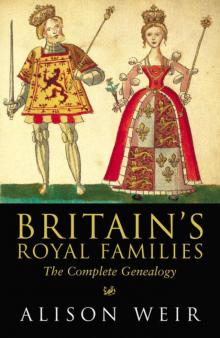 Britain's Royal Families: The Complete Genealogy
Britain's Royal Families: The Complete Genealogy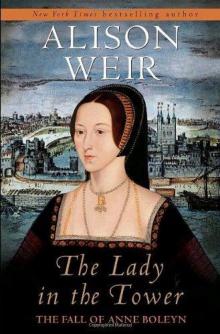 The Lady in the Tower: The Fall of Anne Boleyn
The Lady in the Tower: The Fall of Anne Boleyn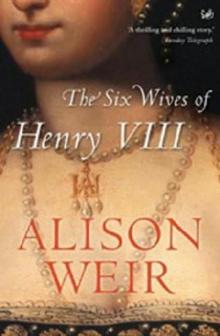 Six Wives of Henry VIII
Six Wives of Henry VIII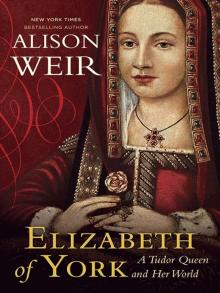 Elizabeth of York: A Tudor Queen and Her World
Elizabeth of York: A Tudor Queen and Her World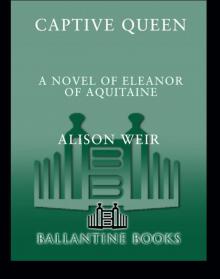 Captive Queen
Captive Queen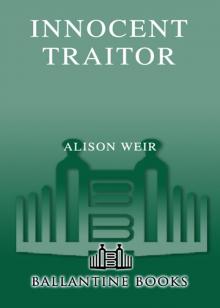 Innocent Traitor
Innocent Traitor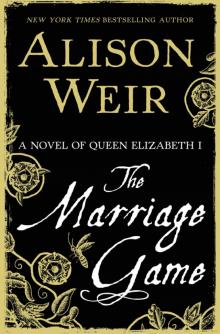 The Marriage Game
The Marriage Game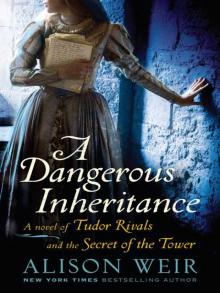 A Dangerous Inheritance
A Dangerous Inheritance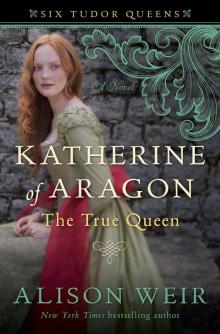 Katherine of Aragón: The True Queen
Katherine of Aragón: The True Queen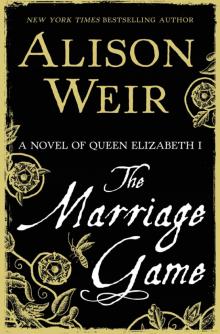 The Marriage Game: A Novel of Queen Elizabeth I
The Marriage Game: A Novel of Queen Elizabeth I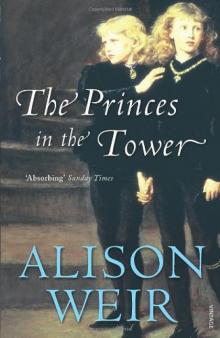 Princes in the Tower
Princes in the Tower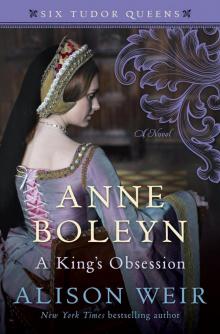 Anne Boleyn: A King's Obsession
Anne Boleyn: A King's Obsession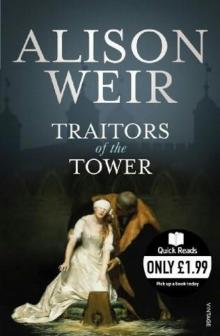 Traitors of the Tower
Traitors of the Tower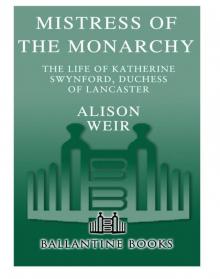 Mistress of the Monarchy: The Life of Katherine Swynford, Duchess of Lancaster
Mistress of the Monarchy: The Life of Katherine Swynford, Duchess of Lancaster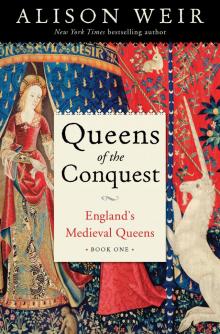 Queens of the Conquest: England’s Medieval Queens
Queens of the Conquest: England’s Medieval Queens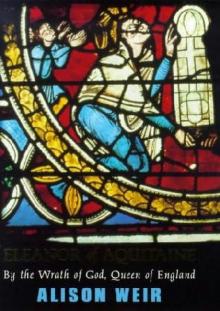 Eleanor of Aquitaine: A Life
Eleanor of Aquitaine: A Life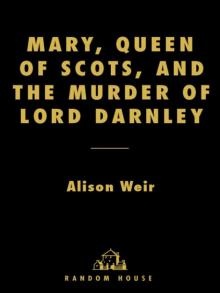 Mary, Queen of Scots, and the Murder of Lord Darnley
Mary, Queen of Scots, and the Murder of Lord Darnley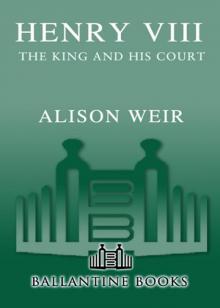 Henry VIII: The King and His Court
Henry VIII: The King and His Court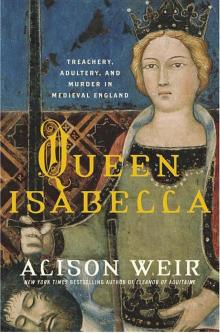 Queen Isabella: Treachery, Adultery, and Murder in Medieval England
Queen Isabella: Treachery, Adultery, and Murder in Medieval England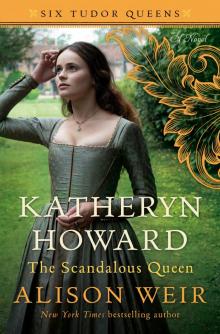 Katheryn Howard, the Scandalous Queen
Katheryn Howard, the Scandalous Queen Arthur- Prince of the Roses
Arthur- Prince of the Roses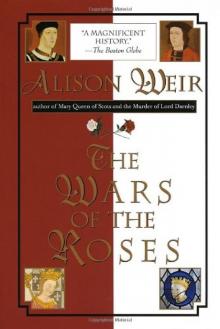 The Wars of the Roses
The Wars of the Roses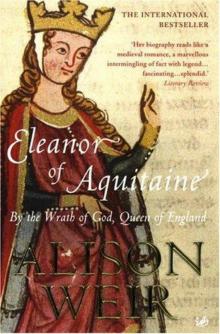 Eleanor of Aquitaine: By the Wrath of God, Queen of England
Eleanor of Aquitaine: By the Wrath of God, Queen of England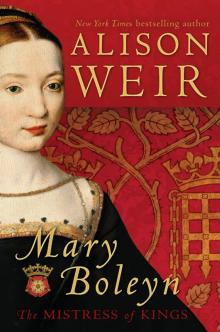 Mary Boleyn: The Great and Infamous Whore
Mary Boleyn: The Great and Infamous Whore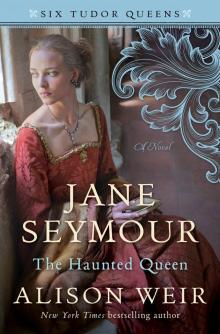 Jane Seymour: The Haunted Queen
Jane Seymour: The Haunted Queen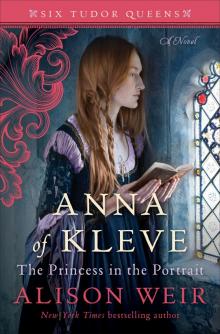 Anna of Kleve, the Princess in the Portrait
Anna of Kleve, the Princess in the Portrait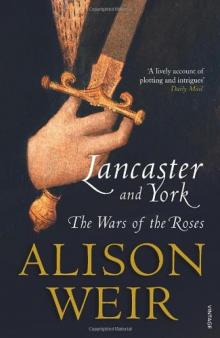 Lancaster and York: The Wars of the Roses
Lancaster and York: The Wars of the Roses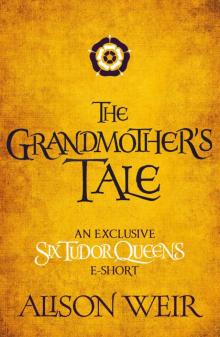 The Grandmother's Tale
The Grandmother's Tale The Princess of Scotland (Six Tudor Queens #5.5)
The Princess of Scotland (Six Tudor Queens #5.5)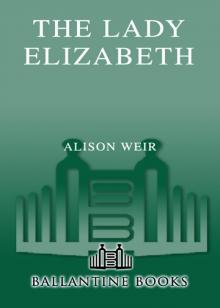 The Lady Elizabeth
The Lady Elizabeth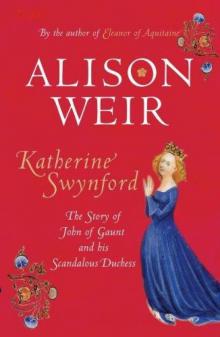 Katherine Swynford: The Story of John of Gaunt and His Scandalous Duchess
Katherine Swynford: The Story of John of Gaunt and His Scandalous Duchess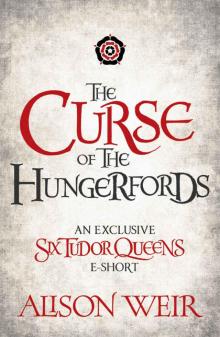 The Curse of the Hungerfords
The Curse of the Hungerfords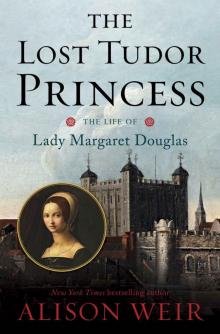 The Lost Tudor Princess: The Life of Lady Margaret Douglas
The Lost Tudor Princess: The Life of Lady Margaret Douglas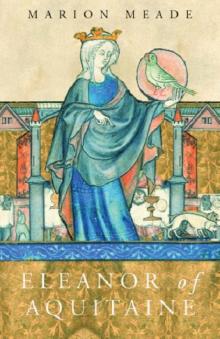 Eleanor of Aquitaine
Eleanor of Aquitaine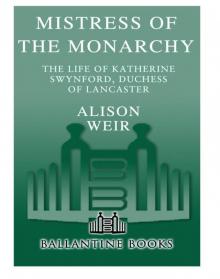 Mistress of the Monarchy
Mistress of the Monarchy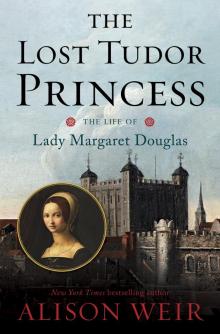 The Lost Tudor Princess
The Lost Tudor Princess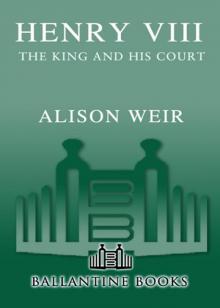 Henry VIII
Henry VIII Anne Boleyn, a King's Obsession
Anne Boleyn, a King's Obsession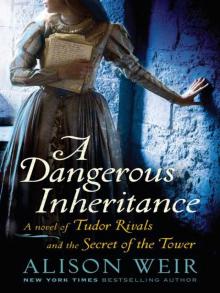 A Dangerous Inheritance: A Novel of Tudor Rivals and the Secret of the Tower
A Dangerous Inheritance: A Novel of Tudor Rivals and the Secret of the Tower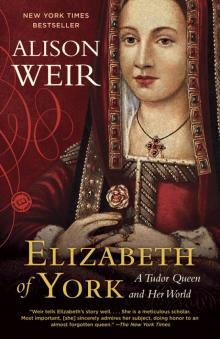 Elizabeth of York
Elizabeth of York Katherine of Aragon, the True Queen
Katherine of Aragon, the True Queen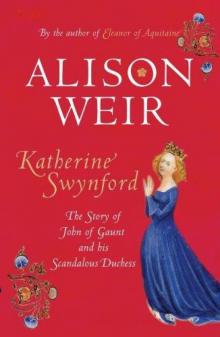 Katherine Swynford
Katherine Swynford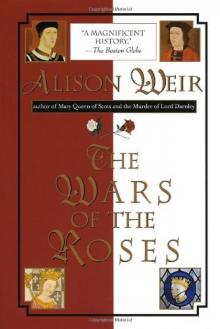 Wars of the Roses
Wars of the Roses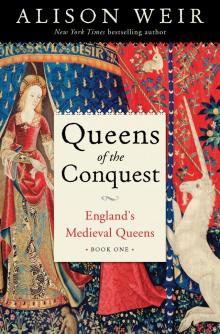 Queens of the Conquest
Queens of the Conquest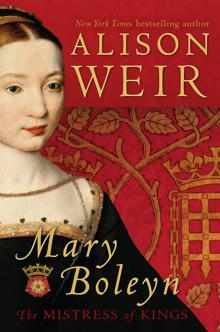 Mary Boleyn
Mary Boleyn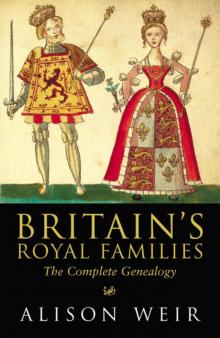 Britain's Royal Families
Britain's Royal Families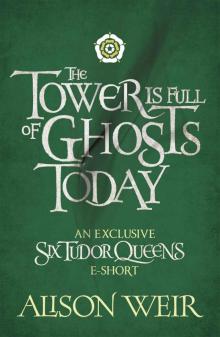 The Tower Is Full of Ghosts Today
The Tower Is Full of Ghosts Today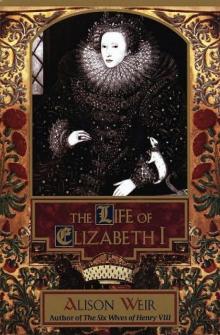 Life of Elizabeth I
Life of Elizabeth I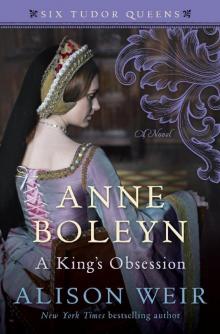 Anne Boleyn A King's Obssession
Anne Boleyn A King's Obssession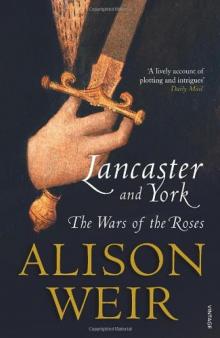 Lancaster and York
Lancaster and York Jane Seymour, the Haunted Queen
Jane Seymour, the Haunted Queen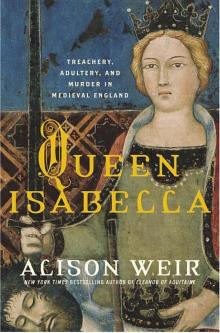 Queen Isabella
Queen Isabella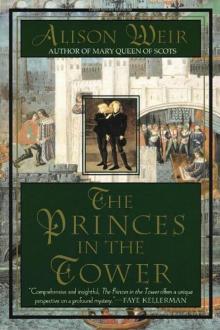 The princes in the tower
The princes in the tower